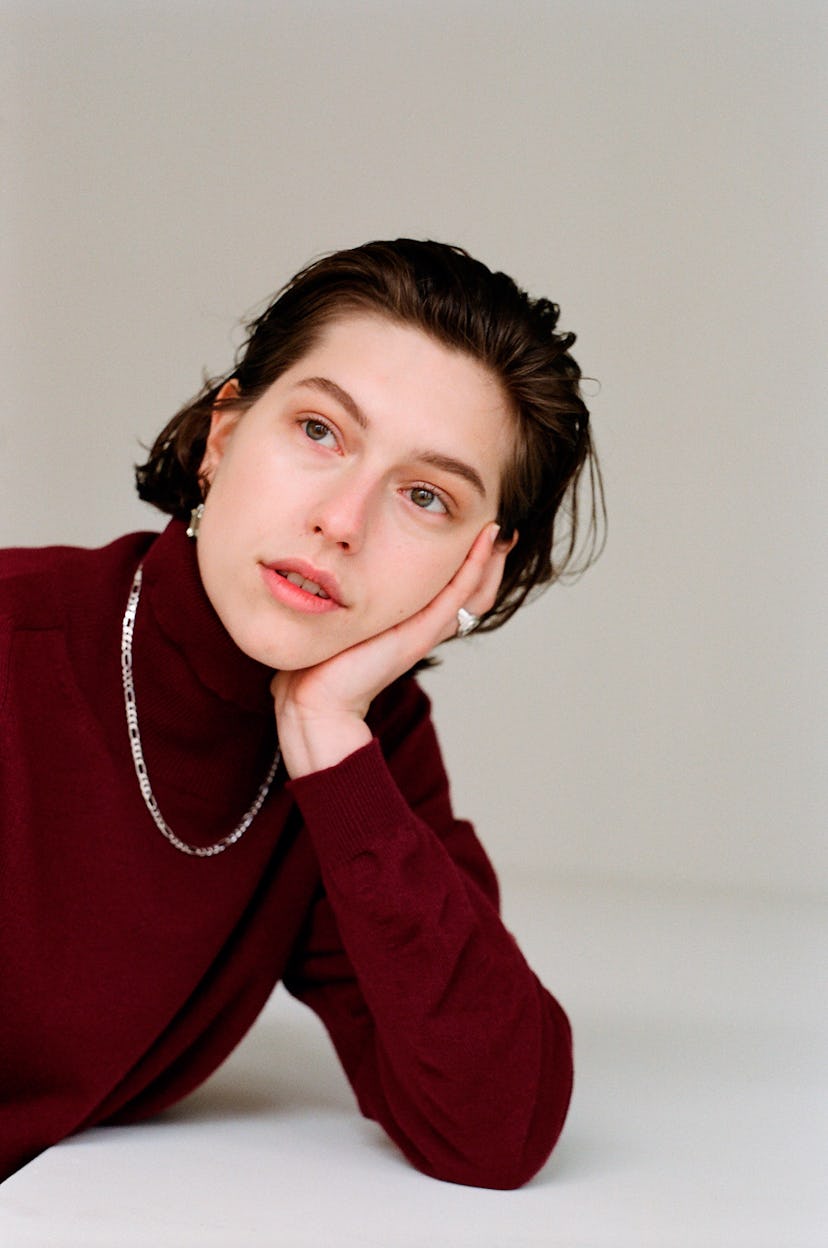King Princess on the Limits of Being Pop’s New Queer Idol

If you talk to any musician who’s made a record at Mission Sound, the Brooklyn music studio, chances are you’ll hear stories about a precocious little girl named Mikaela Straus. By the time she was 8 years old, the self-described studio rat (her father, Oliver Straus, is the place’s owner) was spending her after-school hours hanging with indie musicians like Arctic Monkeys and Cat Power, providing commentary on their songs, whether they asked for it or not. Soon she was doing background vocals for some of the bands, and at 11 she was taking meetings with Virgin Records. Offered the main singing role in an animated series the label was developing, Mikaela surprised everyone by turning it down.
“I was a ballsy kid, but I knew I wasn’t ready,” she says. “I knew I had to wait.”
The wait is over. Now 20 and better known by her stage name, King Princess, Straus is hitting it big as a queer pop star. When she shows up for an interview at an L.A. coffee shop, wearing an oversize green hoodie and no makeup, Straus exudes city-kid cool, her conversation a brisk mix of saucy banter and deadpan self-deprecation. (How would she define her personal style? “Like, the hottest boy on your lake,” she says.) Looking back on her career path, she refers to 2017 as if it were eons ago. That was the year Mark Ronson heard her EP and signed her as the first artist on his label, Zelig Records. Then Harry Styles cryptically tweeted a lyric from her debut single, the Patricia Highsmith–inspired lesbian ballad “1950.” In short order, Straus found herself with the requisite six-figure follower count on Instagram as well as a passionate base of young fans hungry for an openly gay, gender-fluid musician to idolize.
King Princess wears a Max Mara shirt; Effy Jewelry earrings; her own pants, necklace, and ring.
Asked about the pros and cons of getting so much attention before her first LP is even finished, Straus half smiles. “I would say anxiety is a con. Anxiety, depression, stress.” But when it comes to her music, she is all confidence. Straus writes her songs, sings them, and plays all her own instruments. She’s also figured out the cathartic value of music as therapy: The five songs on her first EP, all written as she wallowed in misery following a breakup, became a source of joy when she realized they were good. Straus looks out the window and offers an ironic shrug. “So I guess my life is going to be a never-ending cycle of sadness and rebirth, and then marketing my sadness to the world,” she says. “I will keep reliving this pain over and over again.”
Ronson recalls that when he first listened to the tracks Straus self-recorded at 17, he was shocked that they were “so fully formed in terms of songwriting.” One heartsick line in “1950”—“Did you mean it when you said I was pretty?”—really got to him. “I just melted,” he says. “I was like, I don’t even know how to classify this genre-wise, but it’s too good.”
King Princess wears a Max Mara shirt; Effy Jewelry earrings; her own necklace, and ring.
One key to Straus’s appeal is that no matter how explicitly her songs celebrate (or mock) the queer experience, there’s a lot that’s universal about her story. Yes, she has a song called “Pussy Is God,” and in the video for “Talia” the lost love she’s pining for is a sex doll. But as a young teen, even inside her boho Brooklyn bubble, she felt the need to stay in the closet. Eager to conform during freshman year at her Manhattan private school, Straus forced herself through a major femme stage. “I was literally a poppin’ straight girl for six months,” she says. “And then I could not sustain it.”
King Princess wears her own sweatshirt and jewelry.
Today, Straus is as politically minded as any sharp Gen Zer, but she’s refreshingly hesitant to cast herself as a spokesperson for any movement or community. “I don’t need to be that person in the industry who’s laying out how to be gay for you,” she says. “I’d rather put out good art and allow my gayness to be an added bonus of that art.” One lesson she picked up as a kid from several close homosexual “elders” (her nanny was a British gay man, a friend of the family’s they nicknamed Mrs. Doubtfire) is the power of humor—and its close cousin drag. While recording her new LP, Straus has been spending more and more time in suits and fake mustaches. For those who ask, Straus describes herself as genderqueer, but even that open-ended label can seem a bit limiting. “I like being a woman sometimes,” she says. “I would say 49 percent of the time I love my titties. But I’m not fully a woman. I’m somebody who falls center on the gender spectrum, and it changes day to day. It’s just not in me to decide.”